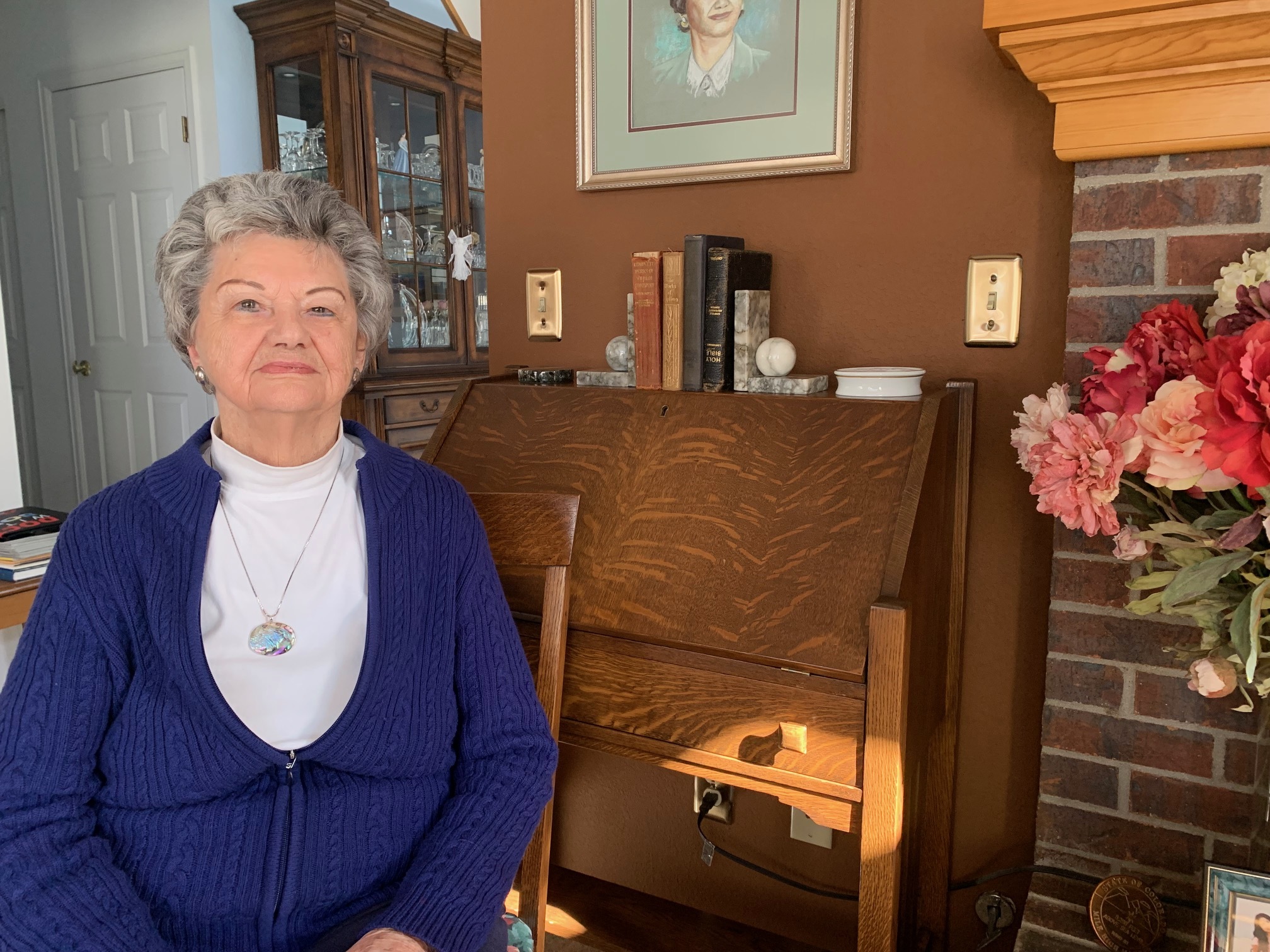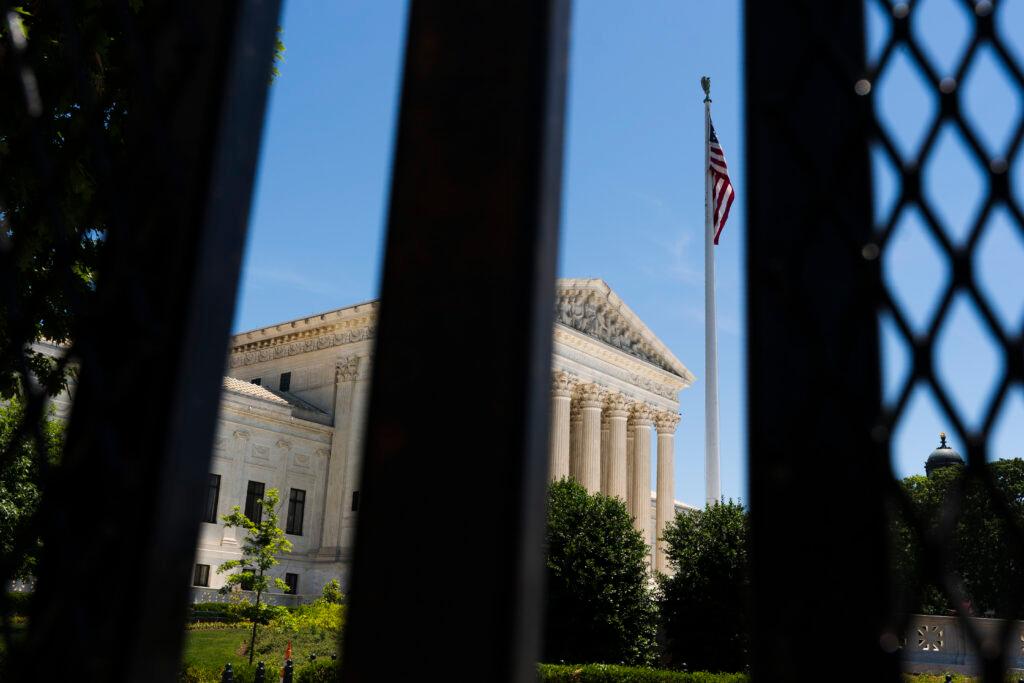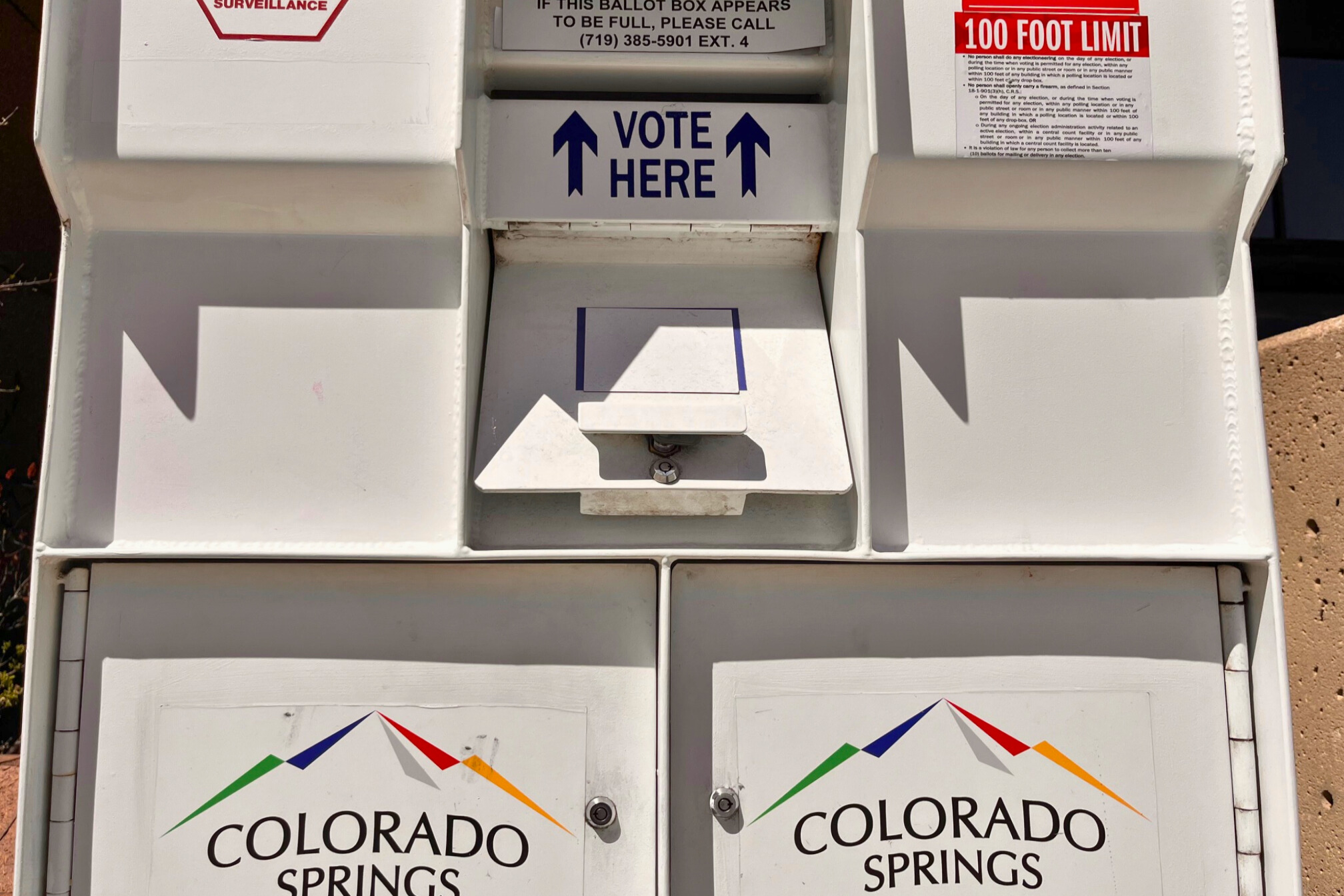
On Jan. 6, 2021, former Republican state party leader Norma Anderson had the television switched on, letting the sound keep her company as she puttered around her Lakewood home alone.
When Anderson overheard a crowd chanting, “Hang Mike Pence!” she went into the living room and sat down.
“I cried,” she said, as she recalled watching the news unfold on her couch. “This is putting our democracy in trouble. If they succeed, they’ve overturned our constitution.”
Three years later, the 91-year-old former state legislator and GOP party leader is heading the challenge to disqualify former President Donald Trump from being on Colorado’s primary ballot.
That challenge reaches its peak today, when the U.S. Supreme Court hears oral arguments over whether the state supreme court’s decision to declare Trump ineligible from holding office again was within the rights and boundaries of Colorado’s independence to govern its elections, federal due process protections and the U.S. Constitution.
The high court’s decision could reverberate far beyond Colorado, with the potential to completely upend the 2024 presidential election and reshape the course of American politics.
In short, Anderson’s decision to sign on as the lead plaintiff in such a case — one for which scholars, lawyers and experts from all sides acknowledge there is literally no precedent — will go down in the history books forever.
“I didn’t even think about it until my son said to me, ‘You know mom, you’re going to go down in history,’” Anderson said, with a nervous chuckle. “He said, 'You’ll be taught in law school classes: Trump versus Anderson.' I never thought about that.”
At the heart of the case is the question of whether Trump’s actions around the Jan. 6 attack on the U.S. Capitol disqualify him from holding office again under Section 3 of the 14th Amendment, which states:
No person shall be a Senator or Representative in Congress, or elector of President and Vice-President, or hold any office, civil or military, under the United States, or under any State, who, having previously taken an oath, as a member of Congress, or as an officer of the United States, or as a member of any State legislature, or as an executive or judicial officer of any State, to support the Constitution of the United States, shall have engaged in insurrection or rebellion against the same, or given aid or comfort to the enemies thereof. But Congress may by a vote of two-thirds of each House, remove such disability.
As the high court hears from attorneys representing Anderson and five other Colorado voters and those representing Trump, experts anticipate the arguments will revolve around a number of highly debatable constitutional points, including:
- Whether Trump’s actions on Jan. 6 match what the crafters of the section meant by “engaged in insurrection.” The 14th Amendment was written in 1868, shortly after the Civil War, at a time when former Confederates were beginning to win elections in Southern states.
- Whether Section 3 applies to the presidency and people seeking the presidential office. A Colorado district court judge concluded it does not.
- Who has the power to decide the constitutional qualifications of a presidential candidate, the courts or Congress?
- And more specifically, whether a state court, in this case the Colorado Supreme Court, has the authority to make this decision. States, generally, are given latitude to run elections and create their own rules about ballot eligibility, but do they have the power to decide whether a federal candidate broke a federal law?
- Whether Section 3 is “self-executing” — which means that it automatically applies, or if Congress or some other governing body has to take some action first to apply it.
- Whether the state court’s factual findings that the former president engaged in insurrection has been sufficient civil due process for Trump — both in Colorado and federally.
Eric Olson, the Denver-based lead attorney for Anderson and the other petitioners, joked that in some ways, there are about seven possible decisions all wrapped into one in this case.
“You’re prepared to answer questions from the most basic to the most difficult,” said Olson, a former solicitor general for Colorado now in private practice, who has argued in front of the U.S. Supreme Court a number of times in the past. “But with this case, having to prepare for all of those issues is a daunting task.”
Christopher Jackson, who heads the appellate group at Holland & Hart and has taken no position on what should happen in this case, chuckled throughout an interview when talking about the enormity of what is at stake here.
“These are hard legal questions, but the problem is more that they’re very open-ended,” Jackson said. “There is no case law or precedent about any of this… and I think it’s hard for any court to make such a significant decision, to kick the leading nominee of a party off the ballot. Even if it seems right under the constitutional reading.”

Briefs from dozens of lawyers, advocates and legal experts from around the country have encouraged the U.S. Supreme Court to take the textual, “originalist” reading of the U.S. Constitution into account as they decide the case.
This interpretation, they argue, would uphold Colorado’s decision.
A group of nationally-recognized historians, led by Harvard's Jill Lepore, authored a brief arguing the issue is black and white if the high court adheres simply to the constitutional text and considers intentions of its authors.
Specifically, they argue the historical record contains ample evidence that the 14th Amendment was created to be “self-executed” and that no legislation was necessary to remove certain people who were automatically disqualified due to their role in a rebellion against the United States.
The historians also write that the drafters fully intended it to apply not just to former Confederates but people “into the future.”
And, finally, they argue that the section was always meant to cover the office of the president.
Jonathan Miller, a lawyer at the Public Rights Project who submitted the brief on behalf of the historians, said that one of the reasons the treason case against former Confederate president Jefferson Davis didn’t ultimately go to trial after the Civil War was because Section 3 had already disqualified him from office.
“He had already been punished for being the leader in the rebellion. You don’t need a criminal conviction for Section 3 of the 14th Amendment to apply,” Miller said. “The history is clear and needs to be followed in whatever ruling they reach in the case.”
Trump’s attorneys and supporters have argued that Colorado’s decision encroaches on powers expressly given to Congress and that if the framers intended Section 3 to cover the presidency, they would have used different language.
They also called the state high court’s decision a nakedly partisan one “that will lead to widespread de-balloting of political opponents,” wrote Gene Hamilton, of America First Legal Foundation.
The brief was submitted on behalf of Texas Sen. Ted Cruz and 177 other members of Congress in support of Trump.
Hamilton and others argue that another section of the Constitution, the 20th Amendment, confirms that a candidate may be elected president even if they are not qualified to hold the office, they just can’t actually be sworn in.
In short, the argument goes, people can elect anyone who follows the rules to get on a ballot legally. And if that candidate doesn’t meet the qualifications for the office — because of age or residency or otherwise — the vice president shall act as president.
In other words, having courts or lawmakers curate the ballot before people get to choose who they want to vote for is forbidden.
The brief notes that doing so would circumvent a power Section 3 explicitly gives to Congress: the ability to exempt a specific candidate from its disqualification.
“By de-balloting anyone it deems covered by Section 3, the Colorado Supreme Court effectively precludes Congress from exercising its Section 3 power to remove the disability during the election season or even after the election takes place,” they wrote.

In another Trump supportive brief, this one filed on behalf of the National Republican Senatorial Committee, lawyers assert Colorado’s Supreme Court overstepped its bounds in the name of democracy.
“The right of all citizens to participate in free and fair elections and to vote for the candidate of their choice is the Constitution’s bedrock guarantee of American democracy,” they write.
Legally, even those experts who are fans of the Colorado decision say it’s a longshot that the ruling is upheld.
“As a short prediction, I think the Supreme Court is likely to put Trump back on the ballot,” said Jackson, at Holland & Hart. “I think it’s hard for any court to make such a significant decision.”
Olson, who will sit at the table in front of the justices today representing the Colorado petitioners, said the state’s decision “made him proud to be an American and a Coloradan.”
“The judicial courage shown by the Colorado Supreme Court and the trial court was exceptional and demonstrates our country and our constitutional order at its best where people looked at the evidence and did their best to render a ruling regardless of the consequences,” he said. “I hope we see the same courage in Washington DC. I expect we will.”
CPR reached out to the Trump campaign, and to the Colorado GOP, which is an intervenor in the case, for comment but did not hear back.
Whatever happens, most everyone expects the supremes to act swiftly, given the rapid march of primaries around the country. Ballots for Colorado’s March 5 contest are already printed, with Trump’s name on them. The immovable nature of elections makes election law very difficult, Jackson said.
“The Supreme Court in a case that isn’t time-pressured may say, ‘State court, you actually applied the wrong definition of “insurrection.” We think it’s a little bit narrower,’” Jackson said. “But we’re in such a shortened time frame, because the election is coming up, that it’s much more difficult for the U.S. Supreme Court to say, ‘Oh the wrong standard, try again, Colorado.’ I think there is going to be a lot of pressure for the U.S. Supreme Court to finally decide this one way or the other and say President Trump is either on the ballot or he isn’t.”
As for Anderson, whether the U.S. Supreme Court agrees with her and her co-petitioners goes far beyond the 2024 presidential election.
Asked how she felt about having her name on such a precedent-setting case, amid loads of national and international attention, she said emphatically none of this was about her.
“I’m a private person. My goal is to save democracy,” Anderson said. “Not to live forever.”
- ‘This case will test America’s commitment to its democracy,’ says former judge who crafted 14th Amendment challenge against Trump
- Interview: ‘The Constitution is clear’ Colorado plaintiff in Trump eligibility case hopes U.S. Supreme Court agrees
- Trump eligibility case has brought new pressures and threats to Colorado’s election workers
- Live updates: Judge hears arguments over whether Trump violated 14th Amendment and is ineligible to be on Colorado’s 2024 presidential ballot









